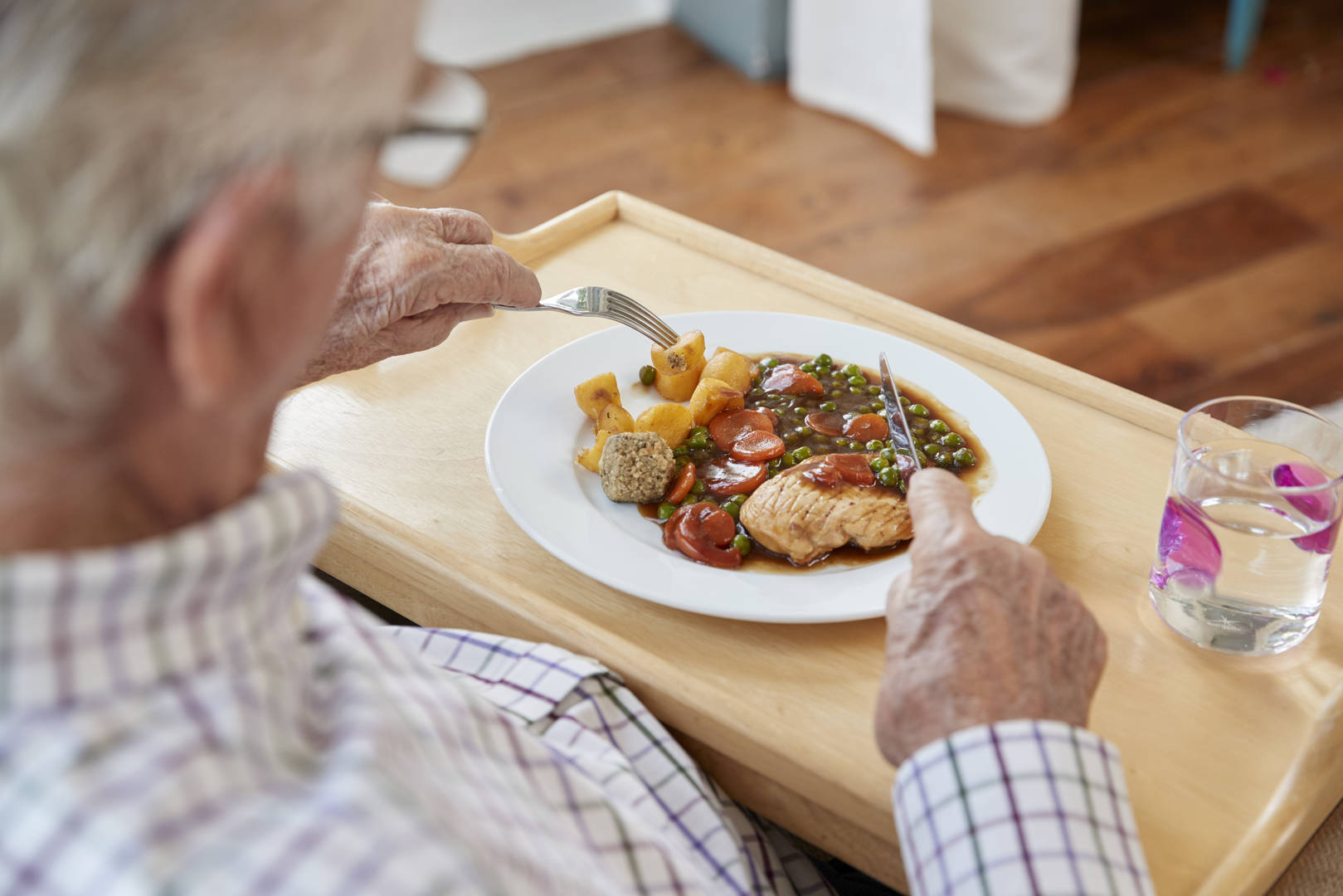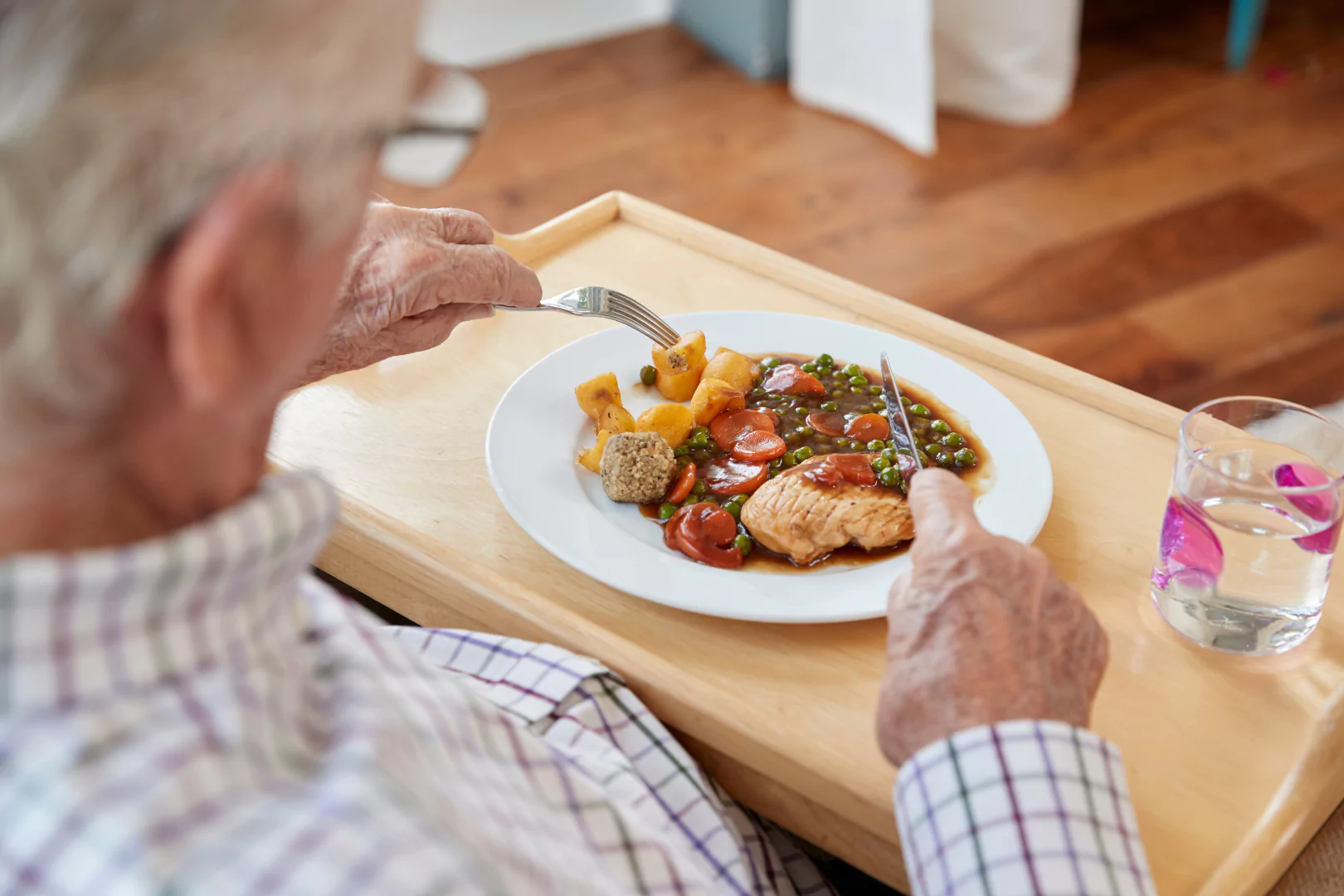
Subscribe To Receive Updates
Nutritional Support
One of the primary goals of nutritional support in senior care is to prevent malnutrition and dehydration, both of which are common risks for elderly individuals. Seniors may have reduced appetites, difficulty swallowing, or sensory changes that make food less appealing. Nutritional services address these challenges by offering a variety of meal options that are visually appealing, flavorful, and easy to eat. Meals are typically prepared with high-quality ingredients and enriched with essential nutrients such as calcium, protein, fiber, and vitamins, which are necessary for maintaining bone health, muscle mass, and immune function. Additionally, hydration support is prioritized by providing water, juices, and other fluids throughout the day to ensure that residents stay properly hydrated.
Preparation is Everything
We work closely with healthcare teams to create tailored meal plans for residents with specific dietary restrictions or medical conditions, such as diabetes, hypertension, heart disease, or kidney disease. These professionals assess each resident’s nutritional needs, monitor their intake, and adjust meal plans as necessary to align with their evolving health needs. For instance, a resident with diabetes may require meals that control carbohydrate intake, while someone with hypertension may need a low-sodium diet. Such personalized nutrition plans not only manage existing conditions but can also prevent new health issues from arising.
Nutritional support services also pay close attention to the texture and consistency of foods to accommodate seniors with chewing or swallowing difficulties, a condition known as dysphagia. Special dietary preparations, such as pureed, minced, or soft-textured meals, help residents with dysphagia eat comfortably and safely, reducing the risk of choking or aspiration. Nutritional services in senior care facilities often incorporate adaptive utensils and provide assistance during mealtimes, allowing residents with mobility or dexterity issues to eat with dignity and independence.
Nutrition and Disease

For seniors with cognitive impairments, such as dementia or Alzheimer’s, nutritional support services are adapted to promote mealtime routines that are easy to follow and supportive of their needs. Staff are trained to provide compassionate assistance, and meals are often served in small, manageable portions that are easier to recognize and enjoy. Finger foods and color-contrasting plates may be used to make mealtime as intuitive as possible. Staff may use gentle cues and reminders to help residents stay focused on eating, ensuring they receive adequate nutrition.
Nutritional support services in senior care also contribute to family peace of mind, as loved ones know that their family members are receiving balanced, nutritious meals suited to their health needs. In many cases, family members are encouraged to visit during mealtimes or even dine with residents, creating opportunities for shared meals and family connections that can brighten residents’ days.
Overall, nutritional support services in senior care and assisted living facilities go far beyond simply providing food. They are comprehensive, resident-centered programs designed to support physical health, respect individual preferences, and enhance the social and emotional experience of mealtime. By meeting these essential needs, nutritional support services empower seniors to lead healthier, more fulfilling lives in a supportive and caring environment.





